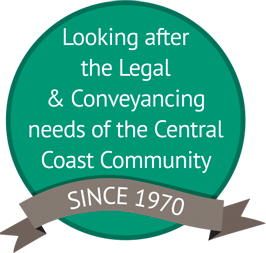Deceased Estates – Guiding you through the process
We understand that dealing with a deceased estate can be extremely challenging and we are here to make it easier for you.
At a time when you are grieving the loss of a loved one, the prospect of managing a deceased estate can be daunting.
Going through paperwork full of legal jargon, and facing potential family disputes is the last thing you want to do, not to mention the legal steps required to carry out this task correctly.
Are you able to fulfil the executor’s obligations for the deceased estate?
Being an Executor is a substantial responsibility, depending on the size of and complexity of the Estate. As the requirements for administration of an Estate can be complex, you will need the assistance of a Solicitor experienced in this area.
There are many issues, see below for more details.
What is Probate?
Essentially, Probate is a “Certificate” from the Supreme Court of New South Wales recognising the Executor (the person named in the Will as the person to wind up the Estate), as the LEGAL PERSONAL REPRESENTATIVE of the Will.
After Probate is obtained, all bodies and organisations holding assets on behalf of the deceased can recognise, or “do business with” the Executor.
When is Probate necessary (and possibly not necessary)
The Executor will need a Grant of Probate when there are “assets to administer”. Some examples are:
• Sale of Real Estate, surrendering leases in retirement villages, receiving refunds from Aged Care facilities
• Banks and other financial institutions vary their “starting point” for Probate from $20,000.00 up to $50,000.00.
Probate is not necessary where Real Estate is owned “as joint tenants” with a surviving owner, or where bank accounts are held jointly.
Applying for probate may also be appropriate in other circumstances – if a person’s Will is contested, for example.
If you are in the position of wanting to contest a Will, we can assist. Call now.
In addition, a grant of probate is generally required before a deceased person’s real estate can be transferred to someone else. However, according to the Supreme Court of New South Wales, this may not be necessary if the deceased owned all their property jointly with another person who is still alive. In this case, ownership would transfer to that second person and no probate would be necessary.
Don’t forget to consider that probate is administered slightly differently in different parts of the country, so you may wish to check with your local Supreme Court or obtain legal advice to confirm what the laws are where you live.
What happens if Probate is not obtained
Sadly, if an Executor deals with money and/or other assets in an Estate without a Grant of Probate, that Executor may be personally liable for any losses suffered by the beneficiaries. IT PAYS TO “PLAY BY THE RULES”.
How do you obtain a “Grant of Probate”
This is done by filing a Summons and Supporting Affidavit in the New South Wales Supreme Court. There is preparatory work to do, as the Executor must reveal to the Court “all assets in the Estate”, which are shown in the “Inventory of Property”.
It may take weeks or months to write to various organisations to be able to complete an accurate Inventory.
What happens where a beneficiary cannot be found
Sometimes, persons named in the Will to receive gifts cannot be located. It is the Executor’s responsibility to attempt to find these people. The Executor might instruct the Solicitor acting on his or her behalf to:
- write to the last known address of the beneficiary
- check the Electoral Roll
- write to known friends or associates of the beneficiary
- search the person’s name on the internet (“google search” the person, anywhere in the world).
- If a beneficiary cannot be found, and there is no evidence of the death of that beneficiary, any monies owed to that person are NOT split among other beneficiaries, but are sent (in New South Wales) to Revenue New South Wales to hold.
If the beneficiary surfaces, application can be made to Revenue New South Wales to pay monies to that person.
What if I cannot do the job or I do not want to do it
In this case the Executor can “renounce Probate”, as long as he or she has not already started dealing with the Estate assets.
This will allow other persons, as set out in New south Wales Law, to make an application to the Supreme Court of New South Wales for a “Grant of Letters of Administration with the Will annexed”.
If there are assets but no Will
There are provisions in New South Wales Legislation and the “ProbateRules” for people to file an Application in the Supreme Court of New South Wales for a “Grant of Letters of Administration of the Estate”.
What about winding up. assets after Probate is granted
The Executor must then (via the Solicitor) “get in” the assets and ensure that all debts (including tax liabilities) are paid before distribution of monies to the beneficiaries.
In all the above circumstances, our team can assist.
TESTIMONIALS
Property Purchase
Michael Daly went above and beyond to make sure everything ran smoothly and rescued me from my own ignorance. A true champion! Thank you so much.
Our thanks to you and your supportive staff for your tireless efforts in assisting us through this difficult time.
Michael has been my family Solicitor for 30 years. My family and I have used his services in a number of ways – Sale and purchase of properties; Purchase and sale of businesses; Preparation of Wills and Powers of Attorney; Successful recovery of unpaid monies on sale of a car by a family member. I have always found Michael to be very thorough, knowledgeable and very comfortable to deal with. I highly value the services he continues to provide.
